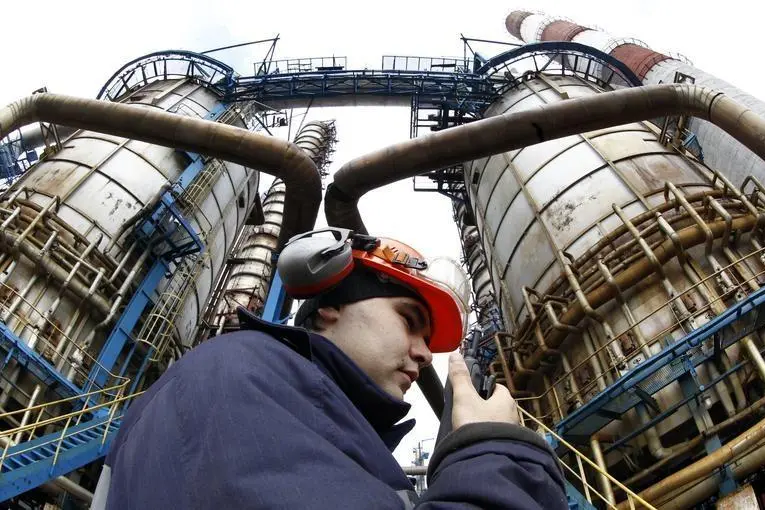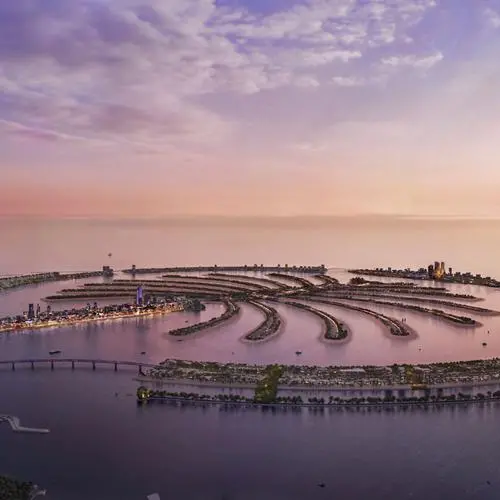PHOTO
Oil and gas upstream investment would need to increase and be sustained at near pre-COVID levels of $525 billion through 2030 to ensure the market is balanced, a report by International Energy Forum and IHS Markit said. Upstream investment in the oil and gas sector in 2021 was depressed for a second consecutive year at $341 billion – nearly 25 percent below 2019 levels.
"The next two years (2022-2023) are critical for sanctioning and allocating capital toward new projects to ensure adequate oil and gas supply comes online within the next 5-6 years," the report cautioned.
On the other hand, the International Renewable Energy Agency (IRENA) has forecasted that energy transition would require over $4 trillion in investments annually until 2050.
At the Gulf Intelligence-organised 12th UAE Energy Forum held virtually in the first half of January, a panel of experts discussed the challenges of bridging the financing gap and striking the right balance in a transitioning scenario.
Christof Rühl, Senior Research Scholar - Centre on Global Energy Policy, pointed to a fundamental shift in capital investment "from privately owned western companies to state or national oil companies" located in resource-rich, government-controlled locations.
"There are more reasons to be mindful of the investment gap because of the lack of investment in western oil and gas companies for regulatory reasons related to climate change," he said, adding that the dichotomy has resulted in a shift to stable companies with cheaper resources – the reason why UAE and Saudi are on an expansion spree.
He emphasised that underinvestment is cyclical as oil investments follow oil prices with a delay.
"There is probably a shortage of investment right now, but the long-term secular trends are probably less important issues," he said.
Decarbonisation is an imperative
Reflecting the region's view, Sara Akbar, Chairperson & CEO, OILSERV, Kuwait & Non-Executive Director, Petrofac, stressed that the petroleum industry should decarbonise and embrace energy transition while securing future fuel supplies.
Within the next few years, she continued, the supply crunch leading to higher prices will maximise the value generated from oil and gas investments being made now and allow producing companies to capture market share before oil demand dwindles in the wake of climate change.
"Iraq has the maximum opportunity (size-wise in the region), and they are putting together a plan," she said.
Akbar also spotlighted growth opportunities in upcoming sectors like carbon management and homegrown companies like Masdar and ACWA Power.
ESG consideration
Echoing the need for striking the right balance, Ahmed Attiga, Chief Executive Officer, Arab Petroleum Investments Corporation (APICORP), said: "We will continue to support the hydrocarbon sector but with the emphasis of making it cleaner and greener."
He said APICORP's first-ever green bond issued by an energy-focussed financial institution in the MENA region was three times oversubscribed and 93 percent of the investors were hardcore ESG [Environment, Social and Governance] investors from developed countries.
"This shows ESG investors believed an institution owned by 10 MENA oil producers can finance green investments and also play a key role in oil and gas decarbonisation.
"As a financier, we are seeing clients - both public sector and private sector - in the region serious about introducing ESG elements," Attiga said.
However, Carole Nakhle, CEO of Crystol Energy, said organisations use different metrics to measure ESG, adding that it is "still a work in progress to be able to say with confidence that it will direct investments into certain areas or not."
Both Nakhle and Attiga agreed that the region is warming up to private international capital, as shown by the success of PPPs (Public-Private Partnerships), IPOs (Initial Public Offering) of state-owned entities, and debt issuances.
However, Attiga also noted that the transition would still require government cash infusion.
Nakhle underlined that returns drive investments, and there are many unknown variables now. "Expectations about cost, government policy, investment gap in future supplies…. future economic growth forecast….Outlook for EVs and the transport sector….are all unknown".
She said that the investment gap is complicated and requires a comprehensive understanding than just stating underinvestment leads to a looming energy crisis.
The Crystol Energy CEO also noted that across the green energy spectrum, investors today are more interested in cross-sector applications and technologies like battery storage than just wind and solar.
She concluded that higher fossil fuel prices and carbon pricing would accelerate investments in the energy transition.
Andrew Critchlow, Head of News, EMEA, S&P Global Platts, moderated the panel.
(Writing by Sowmya Sundar; Editing by Anoop Menon)
(anoop.menon@lseg.com)
© ZAWYA 2022




















